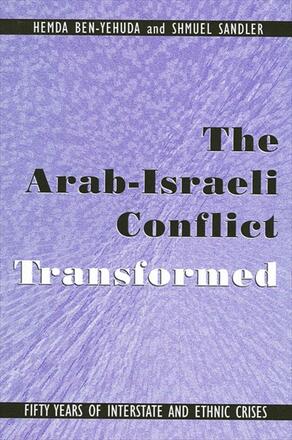
The Arab-Israeli Conflict Transformed
Fifty Years of Interstate and Ethnic Crises
Alternative formats available from:
Makes the perhaps surprising argument that in the last quarter of the twentieth century the Arab-Israeli conflict has been winding down.
Description
The Middle East conflict, be it between the state of Israel and Arab states or between Jews and Palestinians, is a staple of international news. Utilizing both theoretical approaches and empirical evidence, Hemda Ben-Yehuda and Shmuel Sandler argue that despite the recent upswing in violence, particularly over the Palestinian issue, conflict has gradually been giving way, since the 1970s, to a more orderly regime of conflict management. By integrating ethnonational theoretical literature into their analysis, the authors move beyond the current International Relations debate over the relative merits of realist/neo-realist approaches versus neo-liberal-institutional approaches. Ethnic-state disputes are the primary source for failing to terminate the Arab-Israeli conflict.
Hemda Ben-Yehuda is a Research Associate at the International Crisis Behavior Project and teaches in the Department of Political Studies, Bar-Ilan University. Shmuel Sandler is the Sara and Simha Lainer Professor of Democracy and Civility and Chair of the Department of Political Studies at Bar-Ilan University. He is the author of The State of Israel, The Land of Israel: The Statist and Ethnonational Dimensions of Foreign Policy.
Reviews
"The Arab-Israeli Conflict Transformed is useful because it combines theory, case studies, and data analysis in a way that sets an example for further work in the area. It is not written from a position of advocacy but helps to enlighten us about the basis for alternative courses of action in dealing with a persistent and deadly conflict. Its most impressive aspect is its mastery of the evolution of a very complex rivalry in world politics. The book's basic message—that the Arab-Israeli conflict has moved in a gradually favorable direction—is convincing." — Patrick James, University of Missouri-Columbia
"This book serves as a handy reference guide for crisis research—due in part to the methodological rigor and analysis inherent in the International Crisis Behavior framework." — David Carment, Carleton University